Content from the Brookings Doha Center is now archived. In September 2021, after 14 years of impactful partnership, Brookings and the Brookings Doha Center announced that they were ending their affiliation. The Brookings Doha Center is now the Middle East Council on Global Affairs, a separate public policy institution based in Qatar.
One of the great mysteries of the past four years is how Barack Obama — who rose to the presidency, in part, on his promises to fundamentally re-think and re-orient U.S. policy in the Middle East — has instead spent his term running away from the region.
It is difficult to remember it now, but the prospect of an Obama presidency was initially greeted in the Arab world with a mixture of relief and guarded optimism. His name and Muslim origins certainly helped. But there was something else: For the first time, here was an American president who seemed to have an intuitive grasp of Arab grievances. This grasp extended, perhaps most importantly, to the Arab-Israeli conflict. Israelis may have been victims, but so too were the Palestinians. In short, Obama seemed to “get” the Middle East. This didn’t sound like someone who wanted to spend three years “pivoting” to China.
The Brookings Institution is committed to quality, independence, and impact.
We are supported by a diverse array of funders. In line with our values and policies, each Brookings publication represents the sole views of its author(s).
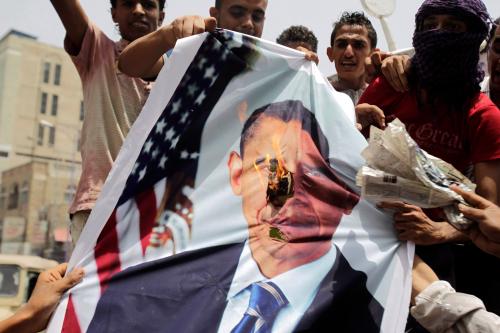

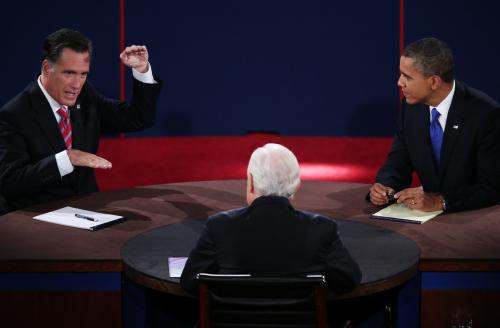
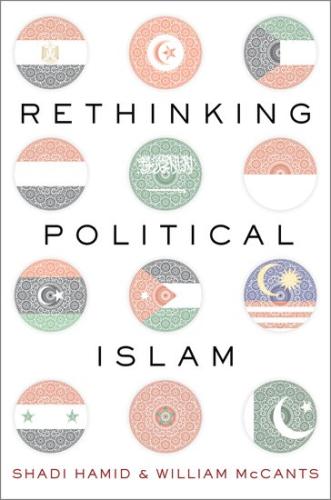
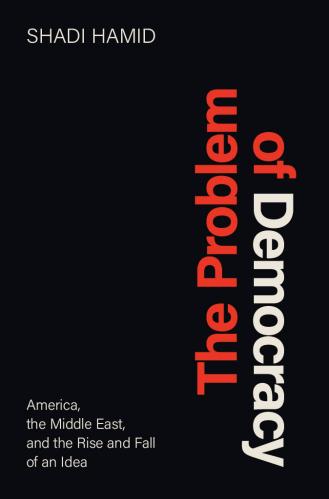
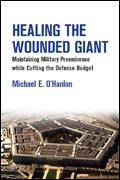



Commentary
Middle East Lost
November 5, 2012